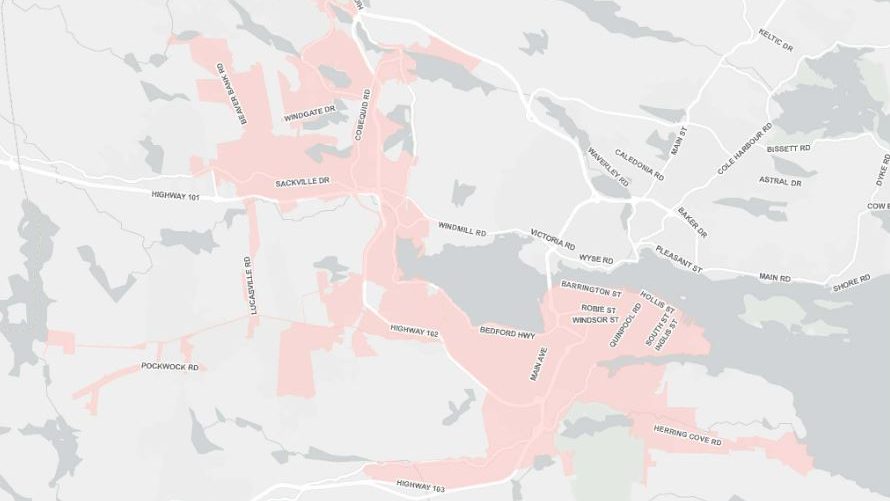Nova Scotia institution positioned to improve economy of local Black community: study
Posted Oct 25, 2021 05:48:30 PM.
WESTPHAL, N.S. — Before Howard Benjamin heard about the East Preston Empowerment Academy outside Halifax, shortcomings in his math and reading comprehension skills were holding him back in his desire to find work as an electrician.
But since obtaining his certification as a construction electrician this year, Benjamin, 51, has been able to work more widely within Nova Scotia’s electrical trade industry.
His Red Seal certification with the country’s national trade standards program became possible after he enrolled in the East Preston Empowerment Academy, or EPEA, an educational institution that offers free programs to Nova Scotians.
“(The EPEA) gave me a place to go study … and get volunteers to help me with the things that I personally needed,” Benjamin said in a recent interview. “From there, I’m able to legitimately open my own business (and) legitimately compete with all the other contractors that are out there.”
The academy is in Preston Township, which has long been a hub of Nova Scotia’s Black community. A recent study by Deloitte Canada found the academy has been a driver of both economic and social growth in the area, helping to address the disparities the local Black community faces.
Born out of a 2014 initiative by the East Preston United Baptist Church, the academy first offered an adult learning program, but it has since expanded to include a preparation course for the high school equivalency diploma as well as a trade apprenticeship program for participants seeking Red Seal certification.
African Nova Scotians tend to be under-represented in the trades, the Deloitte study found. They make up 2.4 per cent of the provincial population, according to 2016 census data, but only accounted for 0.12 per cent of apprenticeships in the province in 2015-2016.
Deloitte concluded that the EPEA is making a dent in the problem, contributing more than $1 million to the provincial gross domestic product between 2016 and 2020. The academy saw 14 of its students find sustained, full-time jobs and more than 70 per cent of participants surveyed indicated they saw an increase in their hourly salary rate after completing a program.
Easton Dunkley, an instructor at the EPEA, said the institution offers a “regenerative process” that allows more people within the community to get certified, and they in turn go on to take younger tradespeople into apprenticeships.
Dunkley said there has been a gap between the expertise of tradespeople from the community and the wages they earn.
“We have people, mostly men, in the trades working, and they’re experts at what they do, but they’re getting very little pay to do it,” Dunkley said. “We recognized that maybe we should get these guys qualified so they can make more money, start their own business and stuff like that.”
With certification, an electrician can go from charging $30 or $40 an hour up to $80 or $90, Dunkley added. “It’s a better quality of life in the end, which is the goal,” he said.
That is why the academy’s president, Sen. Wanda Bernard, calls the EPEA a “lifeline” for African Nova Scotians and other marginalized people who are looking to return to education.
“The barriers that people of African descent in Nova Scotia face in education, it keeps many out of post-secondary education,” she said in a recent interview. She said the program’s “Afrocentric approach” to education helps give participants “much greater opportunities in their trade, greater opportunities for employment or employability, but also as business owners.”
For Benjamin, his status as a Red Seal electrician now means he can “be an ambassador” for the academy. He’s since taken on an apprentice, Vincent Kennedy, who is enrolled in the academy to help him get his own construction electrician certification. Since starting the program four weeks ago, Kennedy said he’s received help in communications and mathematics as he prepares for the exam needed to secure the certification.
“They’re very supportive and patient, and I find it of great help,” Kennedy said.
Benjamin said being able to contribute to the larger community has been a key benefit of his involvement with the academy.
“We continue to do the things we need to do to uplift the folks out here who’ve been battling longer than other people in other regions … and it starts with investing in the community,” Benjamin said.
And aside from contributing to the larger Preston Township area, Benjamin said he’s since found personal satisfaction in being able to see the efforts of his work whenever he passes by an old project.
“There’s nothing more prideful than saying, ‘Yep, I did that house.’ And when my daughter drives by, she can say, ‘Yeah, Dad did that house.’ And when she has kids, whether I’m here or not, she can say ‘Granddad wired that house, those homes,” he said. “It’s that sense of pride and community.”
This report by The Canadian Press was first published Oct. 25, 2021.
—
This story was produced with the financial assistance of the Facebook and Canadian Press News Fellowship.
Danielle Edwards, The Canadian Press








